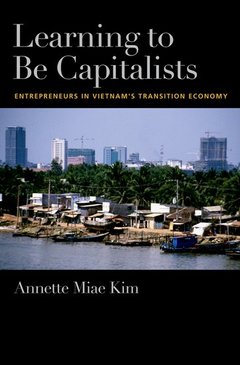Learning to be Capitalists Entrepreneurs in Vietnam's Transition Economy
Langue : Anglais
Auteur : Kim Annette Miae

Given the overwhelming number of ineffective economic reform policies and programs, a central question for international development concerns how significant economic change happens. In the midst of this quandary, a puzzle has been growing quietly the last two decades. Vietnam has transitioned from a poor, centrally planned economy to one of the fastest growing, market economies in the world, despite ignoring conventional reform strategies. This book focuses on solving a specific puzzle of Vietnam's transition. Its fastest growing city, Ho Chi Minh City, has a real estate industry that ranks as the worst place in the world for private capital to invest . Nevertheless, entrepreneurs have emerged to form private firms within the first decade of transition. Where did these people come from? How could they conduct business in such an inhospitable economic environment? The book finds that the transition to capitalism is neither the natural propensity of individuals nor the decision of an all-powerful state nor necessarily requires a long, evolutionary process. The major, rapid, and discontinuous economic change that occurred in Vietnam was fundamentally enabled by a social reconstruction of cognitive paradigms. The new social cognition framework accounts for why some firms were more successful than others as well as why Vietnam's capitalism has surprising characteristics.
1. Introduction. PART 1: COGNITION AND BEHAVIOR. 2. To become an entrepreneur in Ho Chi Minh City. 3. Who Succeeds as an entrepreneur in Ho Chi Minh City. PART 2: STRUCTURE AND INSTITUTIONAL CHANGE. 4. The Social Construction of Entrepreneurs. Comparisons with Entrepreneurs in Other Transition Economies Beyond New Institutionalism. 6. Conclusion. Annex: Method of Study. REFERENCES. INDEX.
Annette M. Kim is Ford International Career Development professor of international urban development at M.I.T.'s Department of Urban Studies and Planning where she teaches courses on property rights, public finance, and project appraisal in developing countries.
Date de parution : 09-2008
Ouvrage de 224 p.
16.1x24.1 cm
© 2024 LAVOISIER S.A.S.



